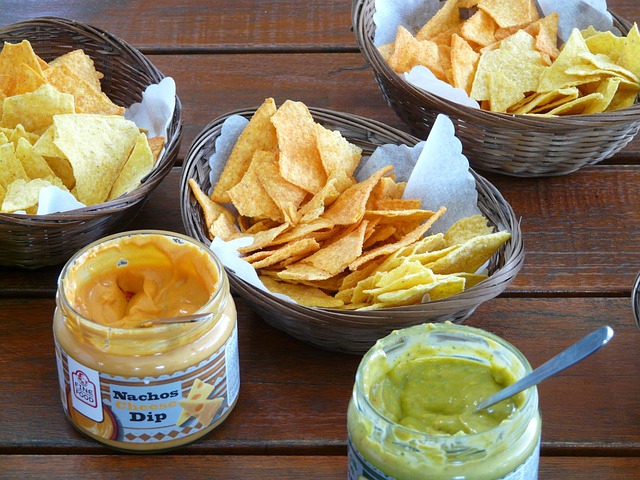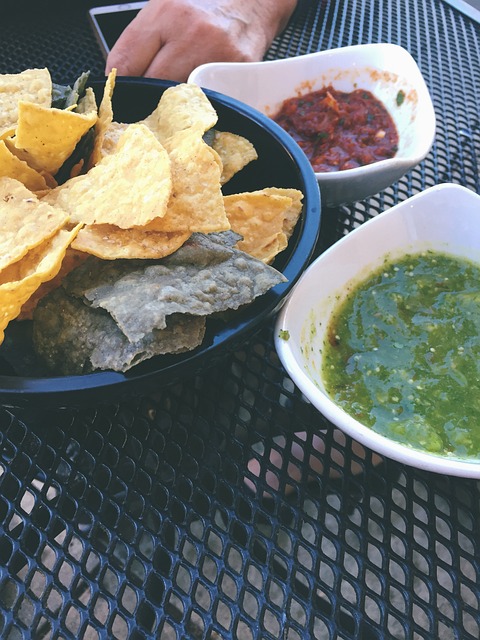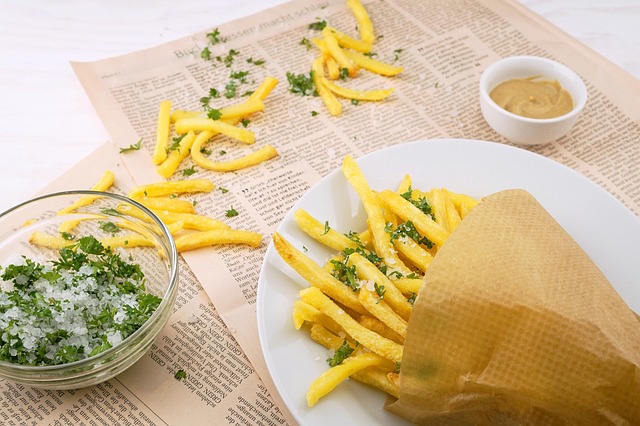In Chicago's iconic Maxwell Street Market, Basic Tortilla Chips Donkey stands out as a culinary tradition since 1892. This historic market showcases local vendors crafting high-quality tortilla chips using traditional methods, reflecting the city's rich food heritage. Donkeys play an unexpected role in chip production, emphasizing the connection to Mexican roots. The market offers unique, hand-cut chips with simple ingredients, setting them apart from mass-produced brands. Today, these chips continue to evolve while preserving their classic taste, attracting locals and tourists alike for a genuine culinary experience.
“Discover the fascinating world of Maxwell Street Market tortilla chip vendors, a Chicago institution since the 1930s. This article explores the rich history of the market and its iconic chips, tracing their origins from humble beginnings to becoming a staple in the city’s vibrant food culture. We delve into the traditional art of crafting basic tortilla chips, meeting the donkeys that once carried produce, and highlighting modern vendors keeping this old-school legacy alive. From farm to table, experience the unique story behind Chicago’s beloved snack.”
- The History of Maxwell Street Market: A Chicago Icon
- The Role of Tortilla Chips in Chicago's Food Culture
- Life of a Donkey: From Farm to Market
- Uncovering the Tradition Behind Basic Tortilla Chips
- The Art of Making Handcrafted Tortilla Chips
- Modern Day Vendors: Preserving an Old-School Legacy
The History of Maxwell Street Market: A Chicago Icon

Maxwell Street Market, a vibrant and historic Chicago landmark, has been a staple in the city’s culinary scene since its inception in 1892. This iconic open-air market is not just a gathering place for local vendors; it’s a cultural melting pot known worldwide. Among the diverse offerings, the Basic Tortilla Chips Donkey stands out as a cherished tradition.
The market’s rich history is intertwined with the city’s growth and change. Over the years, it has evolved from a humble beginning to become a bustling hub, attracting not just local residents but also tourists eager to experience its unique charm. The vendors, including those known for their handcrafted tortilla chips, have contributed to the market’s reputation as a must-visit destination, offering authentic flavors that reflect Chicago’s diverse culinary heritage.
The Role of Tortilla Chips in Chicago's Food Culture

In Chicago, the tortilla chip holds a significant place in the city’s diverse and vibrant food culture. Beyond their use as a classic snack, tortilla chips are an integral part of many local dishes, from tacos and nachos to unique fusion creations. Vendors at iconic markets like Maxwell Street Market play a crucial role in this culinary landscape, offering a variety of Basic Tortilla Chips that cater to both traditional and experimental tastes. The Donkey, for instance, has become a beloved brand among Chicagoans, known for its artisanal approach and high-quality ingredients.
These chips are not just a side dish; they’re a canvas for the city’s culinary creativity. Whether it’s a bustling food stall or a sophisticated restaurant, tortilla chips add a touch of comfort and familiarity to meals. Their versatility allows for endless combinations, from simple dips to elaborate dishes, reflecting Chicago’s commitment to embracing and celebrating its diverse food heritage.
Life of a Donkey: From Farm to Market

The journey of a tortilla chip begins with a humble donkey, working tirelessly on a farm where basic tortilla chips are born. These donkeys, often overlooked yet indispensable, play a vital role in the early stages of chip production. They navigate through fields, carefully transporting fresh corn from the earth to the kitchen. The corn, once harvested, undergoes a meticulous process: it’s cleaned, ground, and mixed with water to create a doughy consistency. This dough is then shaped into thin tortillas by skilled hands or, in some traditional settings, manually rolled out by donkeys using their sturdy forelegs.
After the tortillas are cooked, they need to be sliced into crisp chips. This task is often entrusted to specialized machinery, ensuring precision and uniformity. The slices are then carefully arranged on trays, ready to be fried until golden brown. From farm to market, every step of this process relies on a simple yet robust approach, highlighting the basic ingredients and labor-intensive methods that create the beloved tortilla chips we know and enjoy.
Uncovering the Tradition Behind Basic Tortilla Chips

The tradition of making tortilla chips, a staple in many households and a beloved snack worldwide, has deep roots in Mexican culture. These crispy treats, often dubbed “Basic Tortilla Chips,” have become a universal favorite, but their history is far from ordinary. The humble donkey, or burro as it’s affectionately known in Mexico, plays an unexpected yet crucial role in this culinary journey.
In traditional Mexican households, making tortilla chips was (and still is) often a labor of love involving hand-cut tortillas fried to perfection. Local markets, like the famous Maxwell Street Market, became hubs for these chip artisans. Here, vendors would patiently wait for fresh tortillas, then, with a swift flip of their pan, transform them into golden, crunchy chips. This art has been passed down through generations, ensuring that every bite of these Basic Tortilla Chips carries a piece of cultural heritage.
The Art of Making Handcrafted Tortilla Chips

The art of crafting tortilla chips by hand is a time-honored tradition passed down through generations among Maxwell Street Market’s vendors. It begins with selecting the finest basic tortilla chips, often made from simple ingredients like flour, water, and salt. These unassuming discs are then carefully fried to perfection, resulting in a crispy texture that’s both delicate and robust.
Vendors take pride in their unique methods, whether it’s using a traditional cast-iron skillet or experimenting with different cooking times. The chips are meticulously hand-cut, ensuring each piece is uniform in size and shape. This meticulous process allows for a more authentic flavor profile, where the natural starches and oils of the corn shine through without any added preservatives or artificial flavors. It’s this dedication to craftsmanship that sets apart the tortilla chips from donkey-kick start-ups, offering a taste that truly captures the spirit of Maxwell Street Market.
Modern Day Vendors: Preserving an Old-School Legacy

In the vibrant, bustling heart of modern city markets, a legacy from the past persists—the vendors selling basic tortilla chips, often with a unique twist that echoes the rich history of Maxwell Street Market. These contemporary chip vendors are not just selling a snack; they’re preserving an old-school tradition where every crisp, golden chip tells a story. The classic combination of simple ingredients remains, but the methods and innovations have evolved, ensuring this beloved treat continues to delight folks in today’s digital era.
Donkey-shaped chips, once a quirky novelty, are now a sought-after specialty, harking back to the playful spirit of early vendors. This modern revival not only pays homage to the market’s heritage but also caters to contemporary tastes, proving that even the simplest culinary delights can undergo a metamorphosis while retaining their soul.
The Maxwell Street Market, a Chicago institution, has seen generations of vendors selling not just food, but also stories and traditions. Among these, the humble yet iconic basic tortilla chip stands out. From the farm to the bustling market, the journey of a donkey-drawn cart selling these chips is a testament to resilience and cultural integration. Today, modern vendors continue this old-school legacy, preserving both the art of handcrafted tortilla chips and the rich food culture that defines Chicago.
